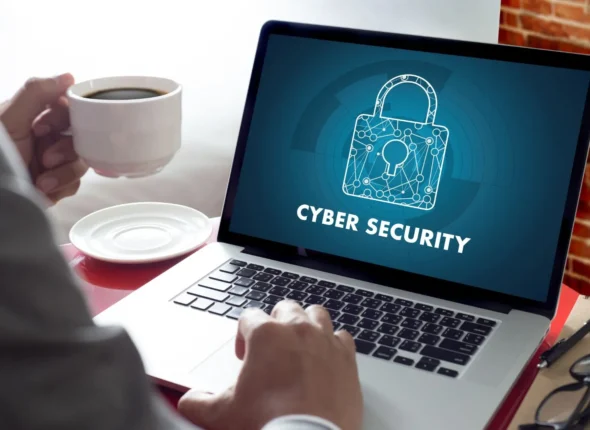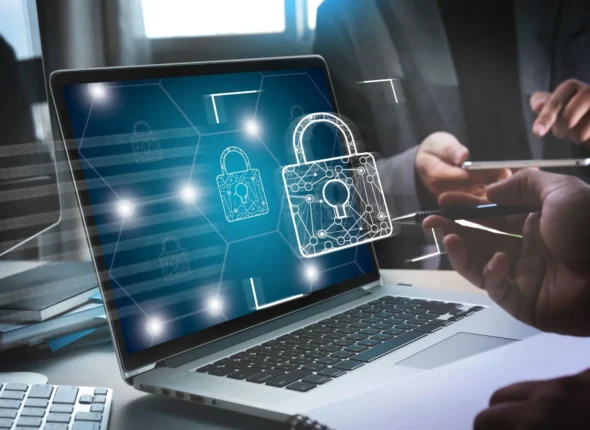Currently Empty: $0.00
About Course
EC-Council Certified Security Specialist (ECSS) is an entry level security program covering the fundamental concepts of Network Defense, Ethical Hacking, and Digital Forensics. It enables students to identify information security threats which reflect on the security posture of the organization and implement general security controls. This program will give a holistic overview of the key components of Network Defense, Ethical Hacking, and Digital Forensics. This program provides the solid fundamental knowledge required for a career in information security.
ECSS EMPOWERS INDIVIDUALS TO:
- Gain Foundational Knowledge in Cybersecurity
- Practice Essentials Skills such as how to defend networks and investigate them
- Challenge Industry recognized exams and earn cybersecurity credentials to build and further your career
WHY IS ECSS IMPORTANT?
- It facilitates your entry into the world of Information Security.
- It provides professional understanding about the concepts of Network Defense, Ethical Hacking, and Digital Forensics.
- It provides best practices to improve organizational security posture.
- It enhances your skills as a Security Specialist and increases your employability.
Exam Details
- EXAM TITLE: EC-COUNCIL CERTIFIED SECURITY SPECIALIST
- Number of Questions: 100
- Exam Availability: EC-Council Exam Portal
- Test Duration: 3 hours
- Test Format: Multiple Choice
- Passing Score: 70%
What Will You Learn?
- Network Security Fundamentals
- Identification, Authentication and Authorization
- Network Security Controls – Administrative Controls
- Network Security Controls – Physical Controls
- Network Security Controls – Technical Controls
- Virtualization and Cloud Computing
- Wireless Network Security
- Mobile Device Security
- IoT Device Security
- Cryptography and PKI
- Data Security
- Network Traffic Monitoring
- Information Security Fundamentals
- Ethical Hacking Fundamentals
- Information Security Threats and Vulnerability Assessment
- Password Cracking Techniques and Countermeasures
- Social Engineering Techniques and Countermeasures
- Network Level Attacks and Countermeasures
- Web Application Attacks and Countermeasures
- Wireless Attacks and Countermeasures
- Mobile Attacks and Countermeasures
- IoT and OT Attacks and Countermeasures
- Cloud Computing Threats and Countermeasures
- Penetration Testing Fundamentals
- Computer Forensics Fundamentals
- Computer Forensics Investigation Process
- Understanding Hard Disks and File Systems
- Data Acquisition and Duplication
- Defeating Anti-forensics Techniques
- Windows Forensics
- Linux and Mac Forensics
- Network Forensics
- Investigating Web Attacks
- Dark Web Forensics
- Investigating Email Crimes
- Malware Forensics
Course Content
Module 01: Network Security Fundamentals
-
Understand Fundamentals of Network Security
-
Discuss Essential Network Security Protocols
Module 02: Identification, Authentication and Authorization
-
Discuss Access Control Principles, Terminologies, and Models
-
Discuss Identity and Access Management (IAM) Concepts
Module 03: Network Security Controls – Administrative Controls
-
Discuss Various Regulatory Frameworks, Laws, and Acts
-
Learn to Design and Develop Security Policies
-
Learn to Conduct Different Type of Security and Awareness Training
Module 04: Network Security Controls – Physical Controls
-
Understand the Importance of Physical Security
-
Discuss Various Physical Security Controls
-
Describe Workplace Security
-
Describe Various Environmental Controls
Module 05: Network Security Controls – Technical Controls
-
Understand Different Types of Network Segmentation
-
Understand Different Types of Firewalls and their Role
-
Understand Different Types of IDS/IPS and their Role
-
Understand Different Types of Honeypot
-
Understand Different Types of Proxy Servers and their Benefits
-
Discuss Fundamentals of VPN and its importance in Network Security
-
Discuss Security Incident and Event Management (SIEM)
-
Discuss User Behavior Analytics (UBA)
-
Understand Various Antivirus/Anti-malware Software
Module 06: Virtualization and Cloud Computing
-
Understand Virtualization Essential Concepts and OS Virtualization Security
-
Understand Cloud Computing Fundamentals
-
Discuss the Insights of Cloud Security and Best Practices
Module 07: Wireless Network Security
-
Understand Wireless Network Fundamentals
-
Understand Wireless Network Encryption Mechanisms
-
Discuss Different Types of Wireless Network Authentication Methods
-
Discuss and Implement Wireless Network Security Measures
Module 08: Mobile Device Security
-
Understand Various Mobile Device Connection Methods
-
Discuss Mobile Device Management Concepts
-
Discuss Common Mobile Usage Policies in Enterprises
-
Discuss Security Risk and Guidelines Associated with Enterprises Mobile Usage Policies
-
Discuss and Implement Enterprise-level Mobile Security Management Solutions
-
Discuss and Implement General Security Guidelines and Best Practices on Mobile Platforms
Module 09: IoT Device Security
-
Understand IoT Devices, Application Areas, and Communication Models
-
Discuss the Security in IoT-enabled Environments
Module 10: Cryptography and PKI
-
Discuss Cryptographic Techniques
-
Discuss Various Cryptographic Algorithms
-
Discuss Various Cryptography Tools
-
Discuss Public Key Infrastructure (PKI)
Module 11: Data Security
-
Understand Data Security and its Importance
-
Discuss Various Security Controls for Data Encryption
-
Discuss Data Backup and Retention
-
Discuss Data Loss Prevention Concepts
Module 12: Network Traffic Monitoring
-
Understand the Need and Advantages of Network Traffic Monitoring
-
Determine Baseline Traffic Signatures for Normal and Suspicious Network Traffic
-
Perform Network Monitoring for Suspicious Traffic
Module 13: Information Security Fundamentals
-
Discuss Information Security Fundamentals
-
Discuss Various Information Security Laws and Regulations
Module 14: Ethical Hacking Fundamentals
-
Understand Cyber Kill Chain Methodology
-
Discuss Hacking Concepts and Hacker Classes
-
Understand Different Phases of Hacking Cycle
-
Discuss Ethical Hacking Concepts, Scope, and Limitations
-
Ethical Hacking Tools
Module 15: Information Security Threats and Vulnerability Assessment
-
Define Threat and Threat Sources
-
Define Malware and its Types
-
Define Vulnerabilities
-
Define Vulnerability Assessment
Module 16: Password Cracking Techniques and Countermeasures
-
Discuss Password Cracking Techniques
-
Discuss Password Cracking Tools
-
Discuss Password Cracking Countermeasures
Module 17: Social Engineering Techniques and Countermeasures
-
Discuss Social Engineering Concepts and its Phases
-
Discuss Social Engineering Techniques
-
Discuss Insider Threats and Identity Theft
-
Discuss Various Social Engineering Countermeasures
Module 18: Network Level Attacks and Countermeasures
-
Understand Packet Sniffing Concepts
-
Discuss Sniffing Techniques
-
Discuss Sniffing Countermeasures
-
Discuss Types of DoS and DDoS Attacks
-
Discuss DoS and DDoS Attack Countermeasures
-
Discuss Types Session Hijacking Attacks
-
Discuss Session Hijacking Attack Countermeasures
Module 19: Web Application Attacks and Countermeasures
-
Discuss Various Web Server Attacks
-
Discuss Web Server Attack Countermeasures
-
Understand Web Application Architecture and Vulnerability Stack
-
Discuss Web Application Threats and Attacks
-
Discuss Web Application Attack Countermeasures
-
Discuss Types of SQL Injection Attacks
-
Discuss SQL Injection Attack Countermeasures
Module 20: Wireless Attacks and Countermeasures
-
Understand Wireless Terminology
-
Discuss Different Types of Wireless Encryption
-
Describe Wireless Network-specific Attack Techniques
-
Understand Bluetooth Attacks
-
Discuss Wireless Attack Countermeasures
Module 21: Mobile Attacks and Countermeasures
-
Understand Mobile Attack Anatomy
-
Discuss Mobile Platform Attack Vectors and Vulnerabilities
-
Understand Mobile Device Management (MDM) Concept
-
Discuss Mobile Attack Countermeasures
Module 22: IoT and OT Attacks and Countermeasures
-
Understand IoT Concepts
-
Discuss IoT Threats and Attacks
-
Discuss IoT Attack Countermeasures
-
Understand OT Concepts
-
Discuss OT Threats and Attacks
-
Discuss OT Attack Countermeasures
Module 23: Cloud Computing Threats and Countermeasures
-
Understand Cloud Computing Concepts
-
Understand Container Technology
-
Discuss Cloud Computing Threats
-
Discuss Cloud Attack Countermeasures
Module 24: Penetration Testing Fundamentals
-
Understand Fundamentals of Penetration Testing and its Benefits
-
Discuss Strategies and Phases of Penetration Testing
-
Guidelines and Recommendations for Penetration Testing
Module 25: Computer Forensics Fundamentals
-
Understand the Fundamentals of Computer Forensics
-
Understand Digital Evidence
-
Understand Forensic Readiness
-
Identify the Roles and Responsibilities of a Forensic Investigator
-
Understand Legal Compliance in Computer Forensics
Module 26: Computer Forensics Investigation Process
-
Understand the Forensic Investigation Process and its Importance
-
Forensic Investigation Process – Pre-investigation Phase
-
Forensic Investigation Process – Investigation Phase
-
Forensic Investigation Process – Post-investigation Phase
Module 27: Understanding Hard Disks and File Systems
-
Describe Different Types of Disk Drives and their Characteristics
-
Explain the Logical Structure of a Disk
-
Understand Booting Process of Windows, Linux, and Mac Operating Systems
-
Understand Various File Systems of Windows, Linux, and Mac Operating Systems
-
Examine the File System
Module 28: Data Acquisition and Duplication
-
Understand Data Acquisition Fundamentals
-
Discuss Different Types of Data Acquisition
-
Determine the Data Acquisition Format
-
Understand Data Acquisition Methodology
Module 29: Defeating Anti-forensics Techniques
-
Understand Anti-forensics and its Techniques
-
Discuss Anti-forensics Countermeasures
Module 30: Windows Forensics
-
Collect Volatile and Non-Volatile Information
-
Perform Windows Memory and Registry Analysis
-
Examine Cache, Cookie, and History Recorded in Web Browsers
-
Examine Windows Files and Metadata
Module 31: Linux and Mac Forensics
-
Understand Volatile and Non-Volatile Data in Linux
-
Analyze Filesystem Images Using The Sleuth Kit
-
Demonstrate Memory Forensics
-
Understand Mac Forensics
Module 32: Network Forensics
-
Understand Network Forensics Fundamentals
-
Understand Event Correlation Concepts and Types
-
Identify Indicators of Compromise (IoCs) from Network Logs
-
Investigate Network Traffic
Module 33: Investigating Web Attacks
-
Understand Web Application Forensics
-
Understand IIS and Apache Web Server Logs
-
Investigating Web Attacks on Windows-based Servers
-
Detect and Investigate Various Attacks on Web Applications
Module 34: Dark Web Forensics
-
Understand the Dark Web
-
Understand Dark Web Forensics
-
Perform Tor Browser Forensics
Module 35: Investigating Email Crimes
-
Understand Email Basics
-
Understand Email Crime Investigation and its Steps
Module 36: Malware Forensics
-
Understand Malware, its Components and Distribution Methods
-
Understand Malware Forensics Fundamentals and Recognize Types of Malware Analysis
-
Perform Static Malware Analysis
-
Analyze Suspicious Word Documents
-
Perform Dynamic Malware Analysis
-
Perform System Behavior Analysis
-
Perform Network Behavior Analysis
Student Ratings & Reviews
5.0
Total 1 Rating
5
1 Rating
4
0 Rating
3
0 Rating
2
0 Rating
1
0 Rating
The Certified Security Specialist course was exactly what I needed to advance my career in cybersecurity. The in-depth coverage of network security, cryptography, and ethical hacking provided me with practical skills that I could immediately apply in my role. I highly recommend this course for anyone serious about a career in cybersecurity.



